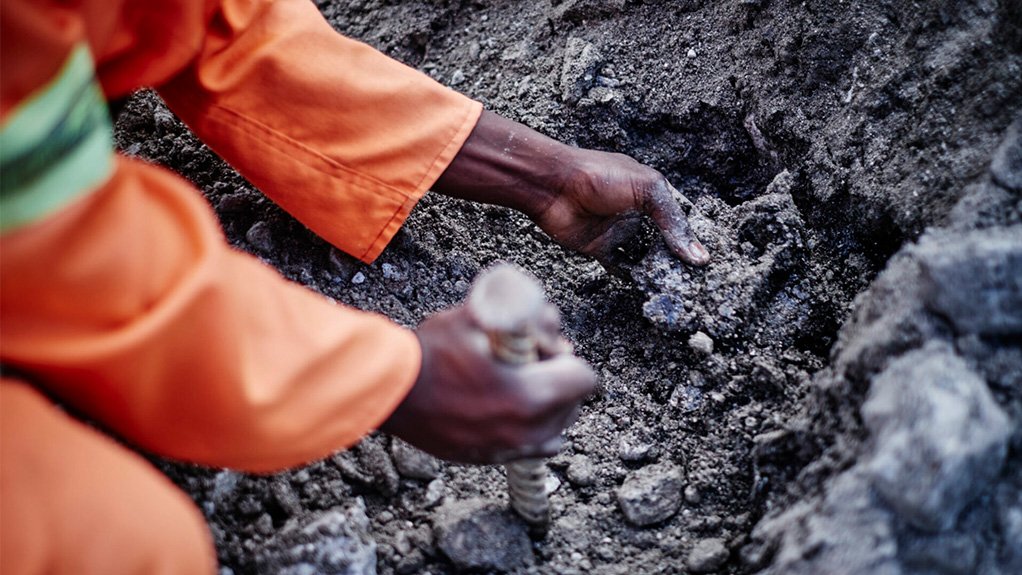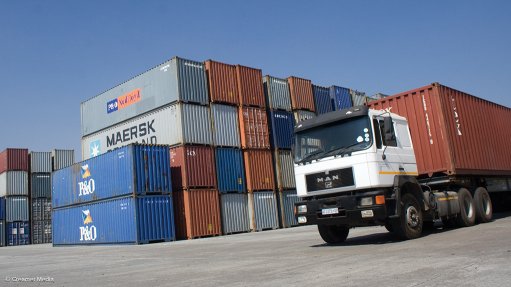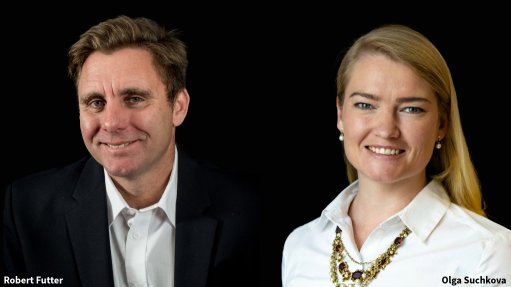Gem miner boosts local economy, socially uplifts



CHIPEMBELE RHINO EMERALD Gemfields and the Kagem emerald processing facility will strengthen the Zambian economy with monetary contributions derived from emerald mining and processing
MINING FOR EMERALDS A miner at the Kagem emerald mine sifts through a deposit to find emeralds
As a measure for promoting enhanced transparency around the sharing of natural resource wealth with governments of host countries, Zambia’s single-largest producing emerald mine, gemstone miner Gemfields’ Kagem emerald mine paid almost a third of its revenue to the Zambian government in 2023.
The State received 31%, or $28.3-million, of Kagem Mining’s 2023 revenue, which totalled $92.7-million.
The figures reflect contributions specifically from company revenue, rather than the more traditional measure based on profit after expenses.
Gemfields again invited governance bodies, extractive companies, industry observers and host governments to adopt its so-called ‘G-Factor for Natural Resources’ as a measure to improve transparency and accountability regarding the share of natural resource wealth paid to a host country’s government, calculated as a percentage.
More broadly, Gemfields also points out that, up to December 2022, Kagem Mining committed more than $3-million towards community projects, and had constructed, expanded and rehabilitated five schools, providing education to more than 2 000 students.
Kagem Mining also committed $345 000 on top of a previous provision of $345 000 in university scholarships in geology and mining engineering.
Further, Kagem Mining and Gemfields Foundation also built and equipped two computer laboratories at Kapila Primary School and Chapula Secondary School, while Kagem Mining constructed a fully-equipped health centre – the Nkana Health Centre – which serves a population of 10 000.
Moreover, Kagem Mining provides support to seven farming associations, benefiting more than 100 farmers and their families, in addition to supporting the Zambian Carnivore Programme with funds of $400 000 provided between 2018 to 2027, as well as a once-off donation of $70 000 to the North Luangwa Conservation Programme.
How it Works
“Given the desire by governments to increase their participation in their country’s natural resources, a practical measure allowing a direct comparison of the sharing of natural resource wealth assists greatly in identifying responsible custodians of host nations’ resources,” says Gemfields CEO Sean Gilbertson.
He adds that the G-Factor for Natural Resources provides a simple “school score”, allowing observers to assess the relative efficiency of extractive companies in converting natural resources into wealth for host nations.
The G-Factor for Natural Resources is intended to be an uncomplicated indicator of the percentage of a natural resource company’s revenue that is paid to the host country’s government in primary and direct taxes.
As such, it is an indicator of the share of natural resource wealth paid to a host country’s government, as well as an indicator of the efficiency of natural resources companies in converting those natural resources into funds for the host government.
The G-Factor for Natural Resources would typically be calculated by each standalone company engaged primarily in the extraction and sale of natural resources, whether in the mining, oil, gas, timber or fishing sectors.
Accordingly, multinational natural resource companies would publish the G-Factor for Natural Resources for each operating subsidiary engaged primarily in the extraction and sale of natural resources.
“In order to better align with practices in other countries in our region, we have this year added export duties and levies as an additional parameter in the calculation.
We hope the ‘G-Factor for Natural Resources’ will be voluntarily adopted by other companies, insisted upon by host governments and incorporated into projects such as the Extractive Industries Transparency Initiative,” he concludes.
Comments
Announcements
What's On
Subscribe to improve your user experience...
Option 1 (equivalent of R125 a month):
Receive a weekly copy of Creamer Media's Engineering News & Mining Weekly magazine
(print copy for those in South Africa and e-magazine for those outside of South Africa)
Receive daily email newsletters
Access to full search results
Access archive of magazine back copies
Access to Projects in Progress
Access to ONE Research Report of your choice in PDF format
Option 2 (equivalent of R375 a month):
All benefits from Option 1
PLUS
Access to Creamer Media's Research Channel Africa for ALL Research Reports, in PDF format, on various industrial and mining sectors
including Electricity; Water; Energy Transition; Hydrogen; Roads, Rail and Ports; Coal; Gold; Platinum; Battery Metals; etc.
Already a subscriber?
Forgotten your password?
Receive weekly copy of Creamer Media's Engineering News & Mining Weekly magazine (print copy for those in South Africa and e-magazine for those outside of South Africa)
➕
Recieve daily email newsletters
➕
Access to full search results
➕
Access archive of magazine back copies
➕
Access to Projects in Progress
➕
Access to ONE Research Report of your choice in PDF format
RESEARCH CHANNEL AFRICA
R4500 (equivalent of R375 a month)
SUBSCRIBEAll benefits from Option 1
➕
Access to Creamer Media's Research Channel Africa for ALL Research Reports on various industrial and mining sectors, in PDF format, including on:
Electricity
➕
Water
➕
Energy Transition
➕
Hydrogen
➕
Roads, Rail and Ports
➕
Coal
➕
Gold
➕
Platinum
➕
Battery Metals
➕
etc.
Receive all benefits from Option 1 or Option 2 delivered to numerous people at your company
➕
Multiple User names and Passwords for simultaneous log-ins
➕
Intranet integration access to all in your organisation


















